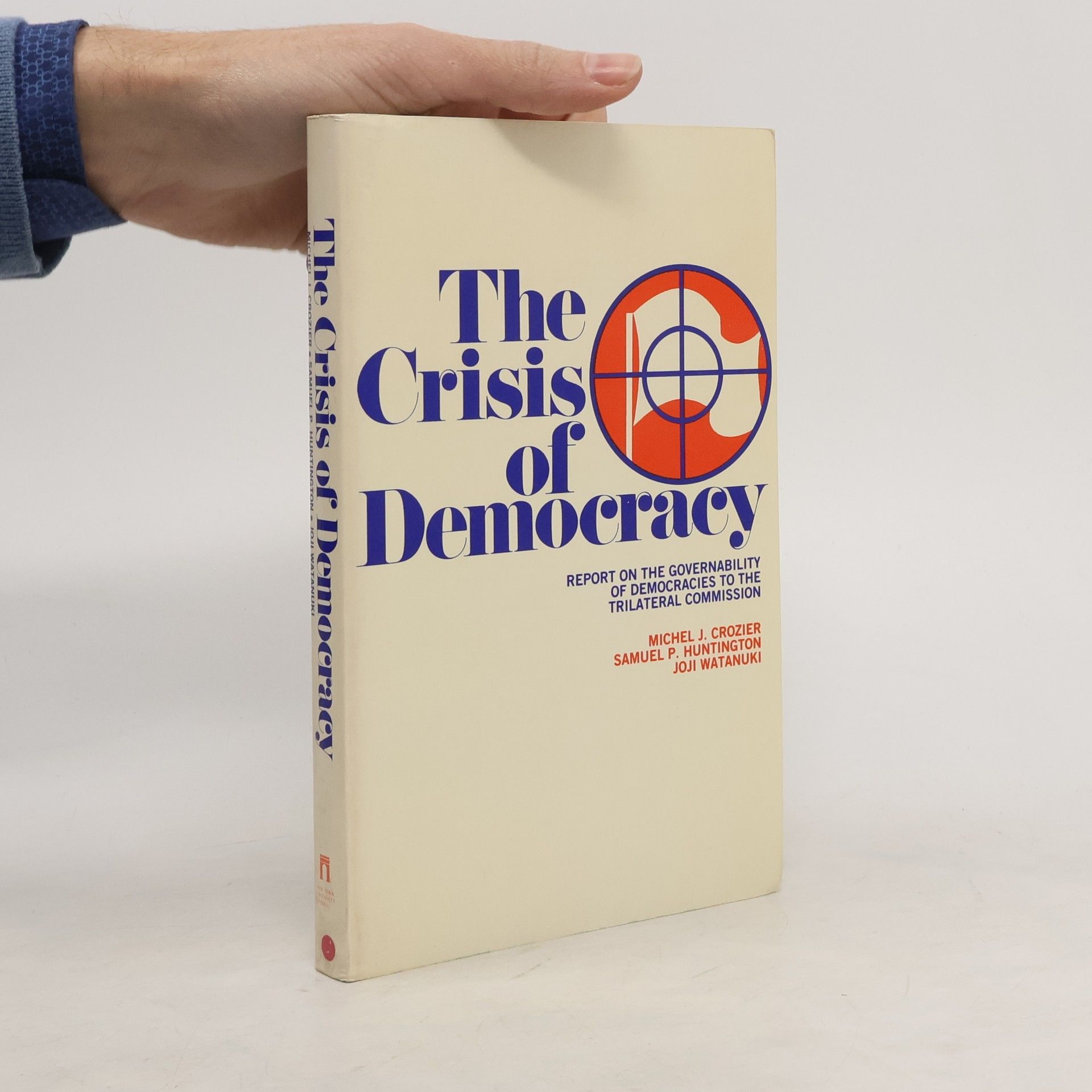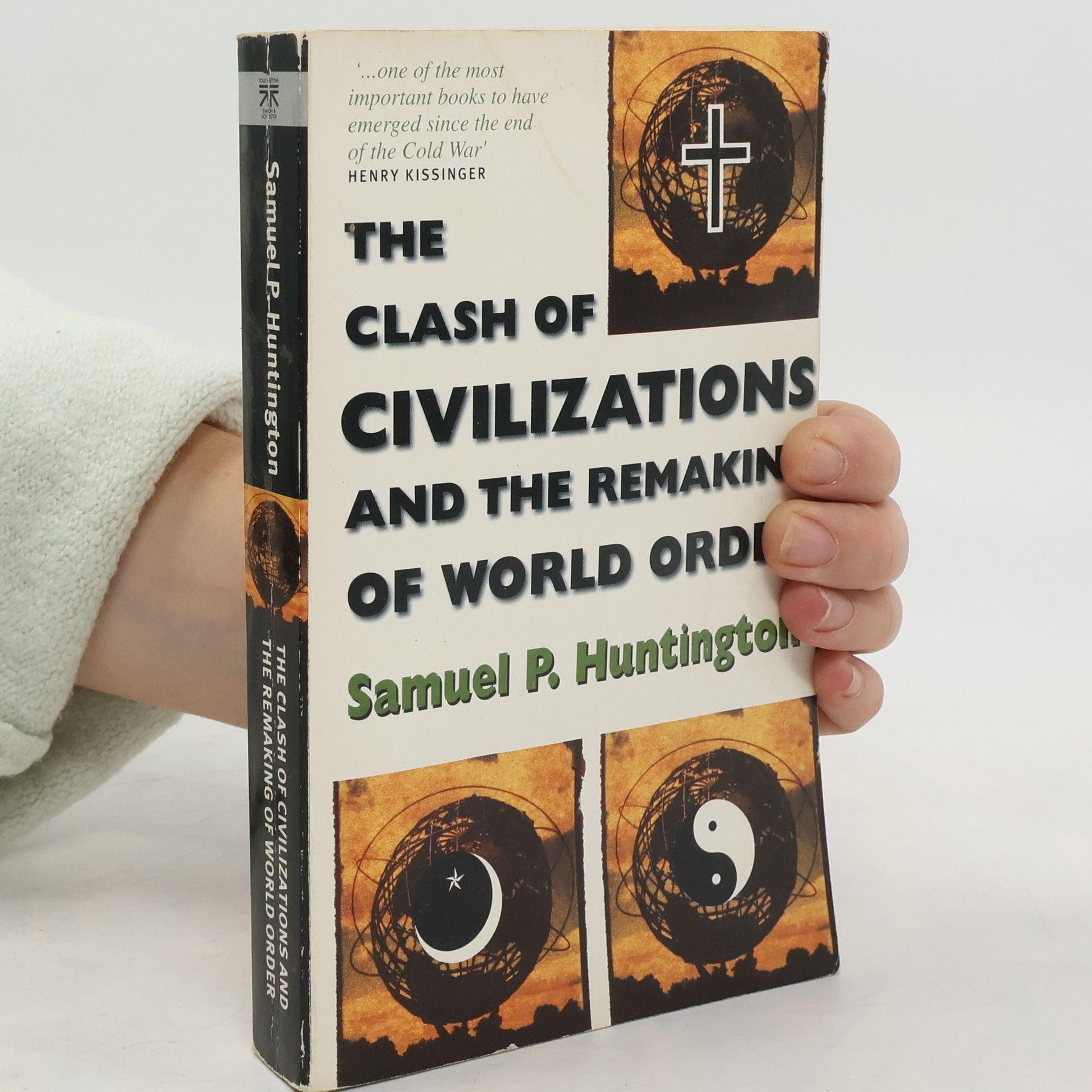One of a series which studies the creation of a national security policy by focusing on what the policy has been and why. Looks at a number of different perspectives derived from events between 1945 and 1960.
Samuel Phillips Huntington Book order (chronological)
Samuel P. Huntington was an American political scientist who gained prominence through his "Clash of Civilizations" thesis, outlining a new world order following the Cold War. His earlier academic reputation was built upon analyses of the relationship between the military and civil government, his investigations into coups d'etat, and his more recent examination of threats posed to the U.S. by contemporary immigration.







Political Order in Changing Societies
- 512 pages
- 18 hours of reading
This now-classic examination of the development of viable political institutions in emerging nations is a major and enduring contribution to modern political analysis. In a new Foreword, Francis Fukuyama assesses Huntington’s achievement, examining the context of the book’s original publication as well as its lasting importance.“This pioneering volume, examining as it does the relation between development and stability, is an interesting and exciting addition to the literature.”—American Political Science Review“’Must’ reading for all those interested in comparative politics or in the study of development.”—Dankwart A. Rustow, Journal of International Affairs
Historické kořeny a současná krize hodnot, které tvoří základ národní identity Američanů. "Tradiční americké hodnoty" a multikulturalismus. Charakteristika americké národní identity. Její základní složky vycházející z angloprotestantské kultury (individualismus, sebeprosazení, rovnost příležitostí). Proces formování amerického národa v průběhu historického vývoje. Idea jednotného národa a její historické proměny. Přistěhovalectví a multikulturalismus. Rozpad tradičních hodnot, "nová tvář" Ameriky a perspektivy pro 21. stol.
Blockade is the story of a long-running trade battle at sea between Britain and Germany during the First World War. Each country fought for survival, but this book focuses on the story of the Northern Patrol and the 10th Cruiser Squadron. The Royal Navy’s role during World War I denying Germany access to the sea, trade, and vital resources was crucial to helping Britain win the war on the Western Front. The ‘Northern Blockade’, located across the inhospitable waters between Iceland and Scotland, was to bring the German economy to its knees and destroy her home front morale. Likewise, the Royal Navy’s success in negating Germany’s attacks on British commerce prevented much suffering in Britain. Steve Dunn vividly describes the final destruction of German surface vessel commerce warfare. He examines the American reaction to the British naval blockade and to Germany’s war on trade as well as Germany’s treatment of American sailors taken prisoner. Dunn also considers changes in strategy employed by both sides. Blockade brings to life the experiences of those who manned the blockade and creates a vivid picture of the dangers of duty in this highly significant, but overlooked aspect of World War I.
Der 'Kampf der Kulturen' geht weiter. Der Titel des Weltbestsellers wurde zum umstrittenen Slogan einer weltweit geführten Debatte: Gibt es bessere Kulturen - im Sinne von sozialer Gerechtigkeit, politischer Demokratie und liberaler Wirtschaft? Warum können trotz jahrzehntelanger Entwicklungshilfe die Staaten Afrikas nicht ohne Hilfe bestehen? Wie ist es zu erklären, dass viele asiatische Länder so erfolgreich sind? Experten diskutieren: Provokant, spannend, kontrovers - ein Muss für jeden politisch interessierten Leser!
The clash of civilizations and the remaking of world order
- 368 pages
- 13 hours of reading
In 1993 the esteemed journal FOREIGN AFFAIRS published an article entitled "The Clash of Civilizations?" by Samuel P. Huntington. According to the journal's editors it went on to generate more discussion than anything they had published since the Second World War. In the article, Huntington posed the question whether conflicts between civilizations would dominate the future of world politics. In the book, he gives the answer, showing not only how clashes between civilizations are the greatest threat to world peace but also how an international order based on civilizations is the best safeguard against war. Since September 11, his thesis has seemed even more prescient and acute. THE CLASH OF CIVILIZATIONS AND THE REMAKING OF WORLD ORDER is now recognised as a classic study of international relations in an increasingly uncertain world.
The Third Wave
- 384 pages
- 14 hours of reading
Between 1974 and 1990, over thirty countries in southern Europe, Latin America, East Asia, and Eastern Europe transitioned from authoritarianism to democracy, marking a significant political trend in the late twentieth century. This analysis examines the causes and nature of these transitions, assesses the stability of new democracies, and considers the potential for further democratization. These recent changes represent the third major wave of democratization, each followed by a reverse wave where some nations reverted to authoritarianism. Through concrete examples and empirical evidence, the author explains the factors driving this trend, including the legitimacy crises of authoritarian regimes, economic and social development, the evolving role of the Catholic Church, and the influences of the U.S., the European Community, and the Soviet Union. The "snowballing" effect, where change in one country inspires others, is also highlighted. Key elite groups influenced the democratization processes, with compromise, elections, and nonviolent tactics being central. New democracies face challenges such as the "torturer problem" and the need to cultivate democratic values. The author argues that disillusionment with democracy can be crucial for its consolidation. The book concludes with an analysis of the factors that will determine the continuation of this wave and offers practical guidelines for those involved in democratization e






